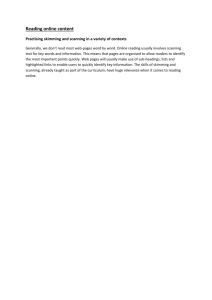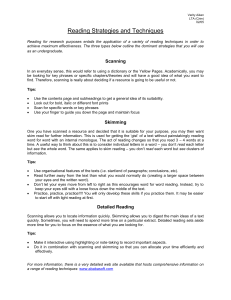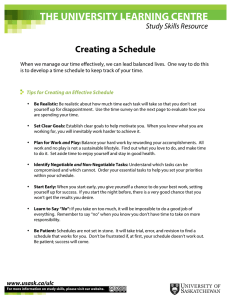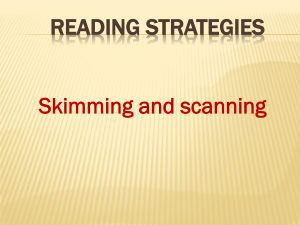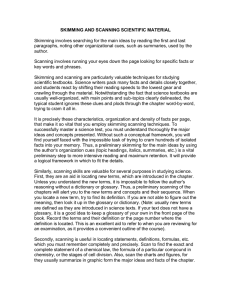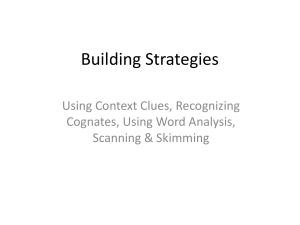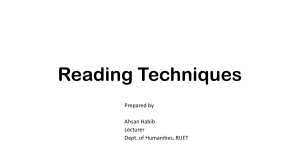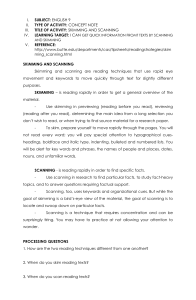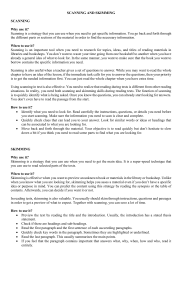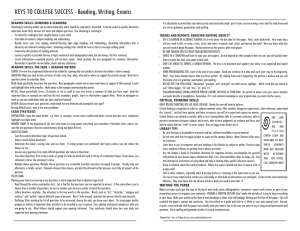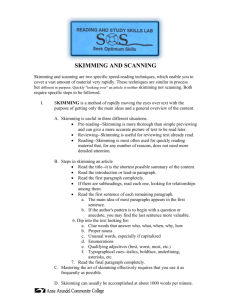Document 12076586
advertisement
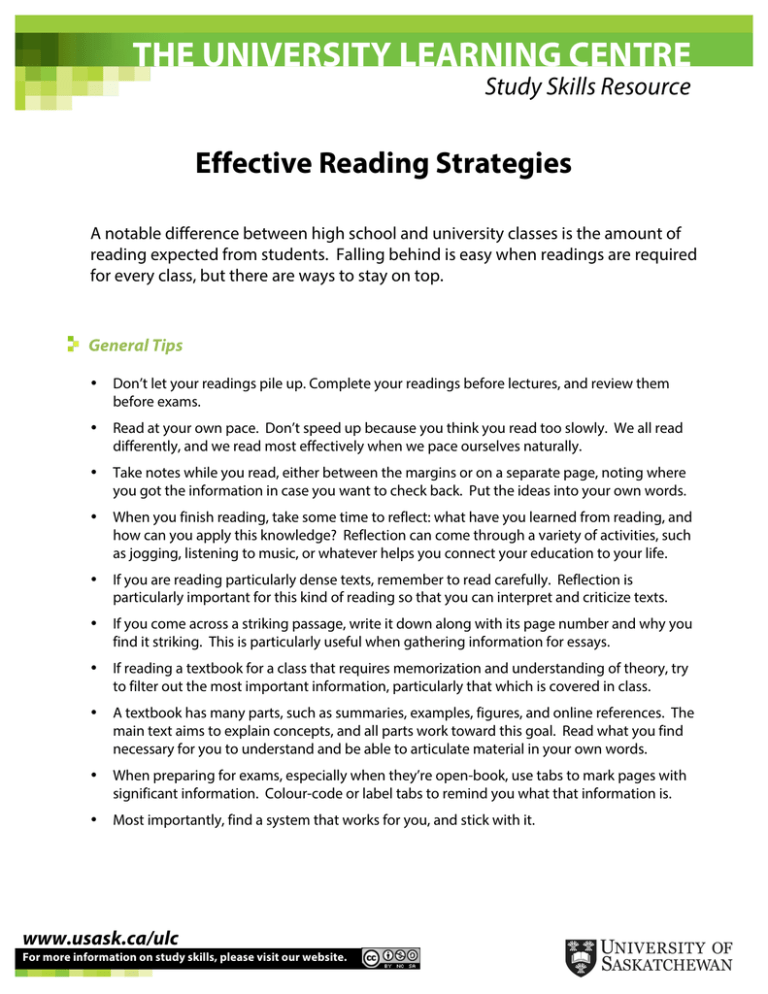
THE UNIVERSITY LEARNING CENTRE Study Skills Resource Effective Reading Strategies A notable difference between high school and university classes is the amount of reading expected from students. Falling behind is easy when readings are required for every class, but there are ways to stay on top. General Tips • Don’t let your readings pile up. Complete your readings before lectures, and review them before exams. • Read at your own pace. Don’t speed up because you think you read too slowly. We all read differently, and we read most effectively when we pace ourselves naturally. • Take notes while you read, either between the margins or on a separate page, noting where you got the information in case you want to check back. Put the ideas into your own words. • When you finish reading, take some time to reflect: what have you learned from reading, and how can you apply this knowledge? Reflection can come through a variety of activities, such as jogging, listening to music, or whatever helps you connect your education to your life. • If you are reading particularly dense texts, remember to read carefully. Reflection is particularly important for this kind of reading so that you can interpret and criticize texts. • If you come across a striking passage, write it down along with its page number and why you find it striking. This is particularly useful when gathering information for essays. • If reading a textbook for a class that requires memorization and understanding of theory, try to filter out the most important information, particularly that which is covered in class. • A textbook has many parts, such as summaries, examples, figures, and online references. The main text aims to explain concepts, and all parts work toward this goal. Read what you find necessary for you to understand and be able to articulate material in your own words. • When preparing for exams, especially when they’re open-book, use tabs to mark pages with significant information. Colour-code or label tabs to remind you what that information is. • Most importantly, find a system that works for you, and stick with it. www.usask.ca/ulc For more information on study skills, please visit our website. Study Skills Resource Effective Reading Strategies – Page 2 What to Do When You Are Falling Behind • Make reading enjoyable. Find a comfortable setting without distractions. For example, you might try reading in a cozy chair with a hot beverage, but without a computer. • Create a reading schedule. Build reading into your day. • Prioritize reading based on importance. If you can’t get it all done, work with what you can. • Try scanning the text for important information, using your class notes and outline as a guide. When you have more time, read the text more closely. The SQ3R Reading Method • S − Survey the information you are about to read, taking note of key words, titles, and themes. Preview the cover, table of contents, subtitles, and pictures. • Q − Question what you read. Why are you reading? What do you hope to learn from your reading? Write your questions down and say them aloud. Identify what you don’t know and would like to learn, and work from there. • R1 − Read the information in small, digestible pieces. Don’t take in too much information at once. • R2 − Recite or answer the questions that you have asked as you go. Stay on track, answering the questions you have developed. If you can answer these questions fluently, you will be able to recite those answers later. • R3 − Review the questions, answers and information that you have already read, going through them again to make sure you understand everything. Skim & Scan Skimming and scanning are useful techniques, but only when applied to a text with which you are already familiar. • Skimming a text involves glazing over the material in order to get a general idea of what it means. Skimming is useful for review, especially after a careful reading of the text to digest more specific knowledge. • Scanning a text requires searching the material for specific details. Scanning is useful when you have a good grounding in the general sense of the material but need reminding of certain details. Get Inspired! www.usask.ca/ulc For more information on study skills, please visit our website.
